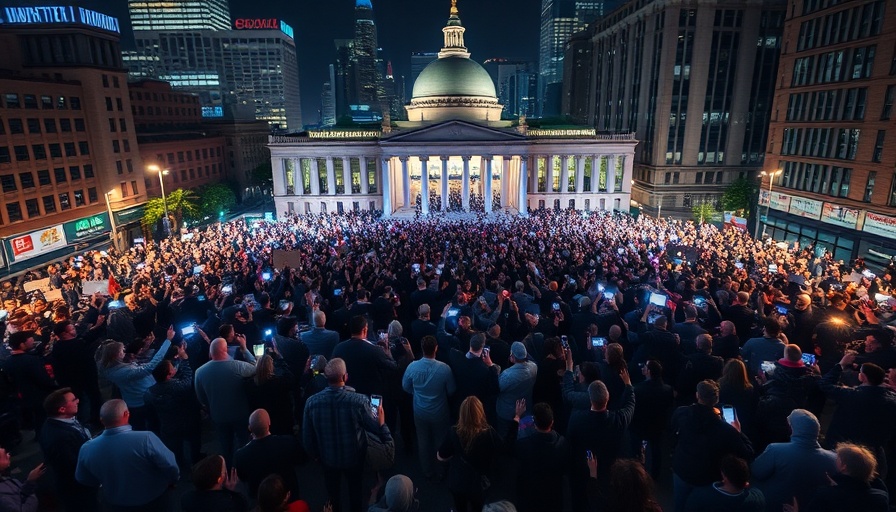
Understanding the Current Israeli Political Climate
Israeli politics has become increasingly polarized, especially under the leadership of Prime Minister Netanyahu. As tensions in the region escalate, the government's actions reflect a concerning trend towards exploitation of the situation for political gain. Recent protests, such as those in Habima Square on March 22, 2025, highlight the growing discontent among citizens regarding governmental decisions and their implications for peace and security.
What Does This Mean for Peace in the Middle East?
The Israeli government's current strategy raises flags among those concerned about the future of peace in the Middle East. Netanyahu's focus on hardline policies seems contrary to what many hope for—namely, peace and coexistence, not division. Given Israel's crucial relationships with neighboring countries and international allies, these extreme positions could jeopardize diplomatic progress that has been painstakingly built over years.
Historical Context: The Role of Extremism in Israeli Politics
To understand the present, we must reflect on the past. Israel has faced numerous political challenges, with periods of increased extremism often resulting in social unrest. This cycle of divisive politics can be traced back to various historical conflicts and treaties, making it imperative for current leaders to prioritize unity over division. As those who advocate for social justice and humanitarian efforts in Israel, aware Christians can engage in dialogue that promotes peace rather than conflict.
Reactions from the International Community
The international community's response to such developments can be as significant as local protests. Countries and organizations advocating for human rights have begun to voice their concerns. These reactions underscore the intersection of faith and social justice as they relate to ongoing conflicts in the region. As humanitarian-focused Christians, it’s essential to support initiatives that encourage dialogue and reinforce peaceful resolutions.
Strategies for a More Inclusive Future
The road to peace is often fragile, yet hopeful strategies exist. Engaging in interfaith dialogue can provide platforms for understanding and cooperation between different religious communities. Moreover, advocating for policies that respect the rights and voices of all citizens—Jewish and Arab alike—can pave the way for a more inclusive and stable Israel.
Taking Action: How You Can Help
Christians globally can play a pivotal role in fostering hope in the region. Advocacy, education, and support for organizations working towards peace can create a ripple effect that encourages reconciliation and understanding. By standing in solidarity with those seeking justice and peace, we contribute to a larger movement of compassion and support.
In conclusion, as the situation in Israel continues to unfold, it remains crucial for engaged believers and social justice advocates to raise their voices. Let us take steps together towards building a more peaceful future in the Middle East, uplift those affected by the current tensions, and spread awareness that fosters empathy and understanding.
 Add Row
Add Row  Add
Add 








Write A Comment